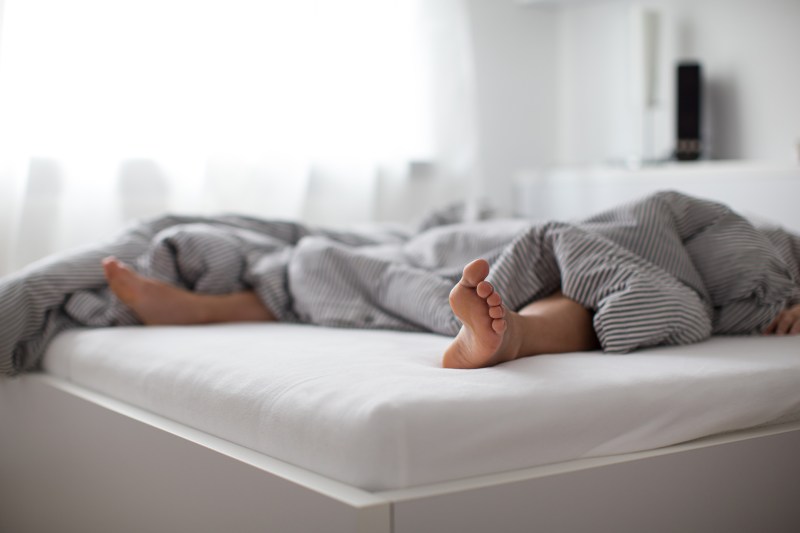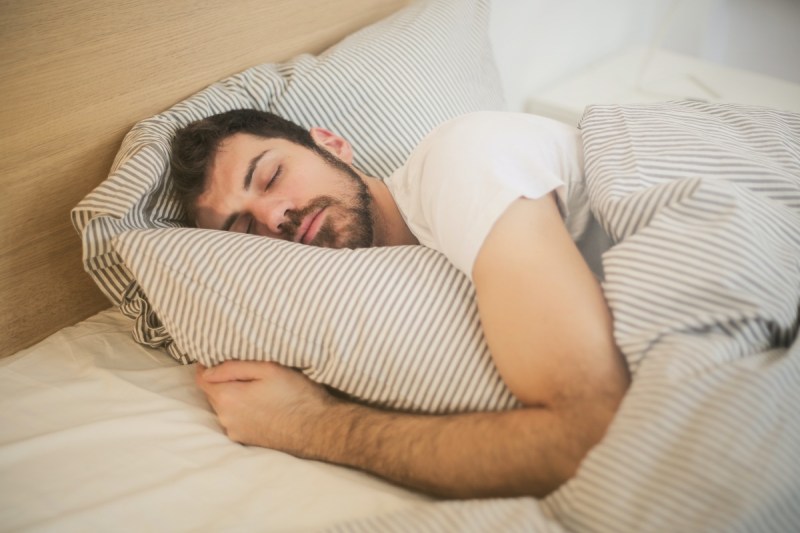
Millions of people suffer from various forms of sleep deprivation. According to the American Academy of Sleep Medicine (AASM), 1 in 3 adults is sleep deprived or affected by a sleeping disorder, including insomnia, sleep apnea, narcolepsy, and sleep deprivation. Lack of sleep leads to a laundry list of health issues and negatively affects the body, brain, mood, and cognitive function.
When it starts getting dark, your brain produces and releases a hormone known as melatonin. This hormone is responsible for regulating your circadian rhythm, or 24-hour internal clock. However, in some cases, your body doesn’t produce melatonin at the appropriate times or amounts. This is where taking a melatonin supplement or eating foods high in melatonin could be very beneficial and necessary for a good night’s rest.
This article will explain how melatonin is created in the body, the types of people who should consider taking melatonin, and the possible side effects of taking melatonin supplements.

What is melatonin?
Unlike other medications and over-the-counter sleep remedies, melatonin is a hormone naturally produced in the brain’s pineal gland that directly ties into your natural circadian rhythm. Your circadian rhythm is a natural internal process of physical, mental, and behavioral changes that follow a 24-hour cycle and responds primarily to light and dark. Darkness triggers the production of the hormone melatonin, and light halts it. Therefore, it helps synchronize our sleep and waking hours with night/day. This cycle ensures we are performing our best optimally and always ensuring consistent, quality rest.
Due to the typical adult lifestyle, certain habits will increase our exposure to light, blocking the natural production of melatonin in the brain. Activities like watching TV, working on a computer, or scrolling our smartphones will all produce unnatural light that prevents melatonin production in the brain. This increased exposure to short-wavelength visible light, or blue light, is why sleep experts suggest not TV watching before bed. It is also advised to put away smartphones and devices a few hours before bed. Instead, it is better to read and turn your bedroom into a sleep sanctuary.

Who should take melatonin?
Melatonin is an appropriate sleep aid for people who have trouble falling asleep at night or staying asleep throughout the night. Melatonin is also a possible remedy for self-created sleep issues that we might face in life. These could be events such as a disruption in a sleep schedule, changing work shifts, weekends of staying up late and sleeping in, and even jet lag.
Natural melatonin production in the brain decreases with age, making the supplement a popular recommendation for older adults having trouble falling or staying asleep. It’s important to note that melatonin does not put a person to sleep, unlike other sleep remedies. Instead, melatonin gently eases the body into its natural circadian rhythm, promoting sleep. Still, research shows that increasing the amount of melatonin in the body significantly reduces the length of time it takes for a person to fall asleep.
While melatonin is produced naturally within the body, which is known as endogenous melatonin, there are some cases where a supplement is needed. In this case, it’s known as exogenous melatonin, which is synthetically made as a dietary supplement in a lab. This type of melatonin comes in liquid, chewable, capsule, or pill form. The dosages range from 1 milligram up to 10 milligrams. Melatonin dosage varies by person, but experts suggest starting with the lowest possible dose. Then gradually increasing until finding an amount that works best for helping fall asleep with few side effects in the morning.
Contrary to popular belief, taking a higher melatonin dosage will not help you sleep better. People on certain medications should avoid melatonin supplements. Specifically, melatonin should not be used with drugs that thin the blood, treat diabetes or blood pressure, or drugs that suppress the immune system. It should also be avoided by people suffering from depression or dementia and women on birth control.

How long does melatonin take to work?
According to the Sleep Foundation, melatonin typically takes anywhere from 20 minutes to 2 hours to work. This timeframe, however, can vary depending on several factors, such as the form of melatonin you’re taking. Different forms of melatonin supplements are absorbed by the body at varying rates. Some may kick in quicker than others.
The dosage also has a huge effect on how long it takes to work. Your individual self is also a factor, as everyone’s body chemistry is unique. How quickly you metabolize melatonin can differ from person to person. If it takes 20 minutes to 1 hour, you’re a person in which melatonin absorbs quickly. The 1- to 2-hour timeframe is the most common for most people to experience the sleep-promoting effects of melatonin.

Does melatonin have side effects?
Melatonin is relatively safe, but extended supplement use has a few side effects. These side effects include the feeling of not being “fully awake” for the first few hours of the day, headaches, crankiness, dizziness, and an overall foggy feeling.
As with any supplement, it’s essential to know when to stop using melatonin as a way to fall or stay asleep. If taking melatonin before bed isn’t helping, and sleep problems still occur, stop using the supplement and consult a doctor for other possible remedies. On the flip side, even if melatonin is working, attempting to fall asleep without taking a supplement for a few nights is advised. This reduces the possibility that your body will build a tolerance to the supplement, and it will work better to avoid future sleep issues.
There hasn’t been much research done on the long-term effects of melatonin usage. Still, the short-term use of melatonin supplements is a safe option for a better night’s sleep. The body naturally produces melatonin in response to darkness, and production ceases due to the body’s exposure to light. However, in some cases, your body doesn’t produce adequate levels of this hormone, and a supplement is necessary. Be cautious when taking melatonin, and always do so under the supervision of your doctor.



